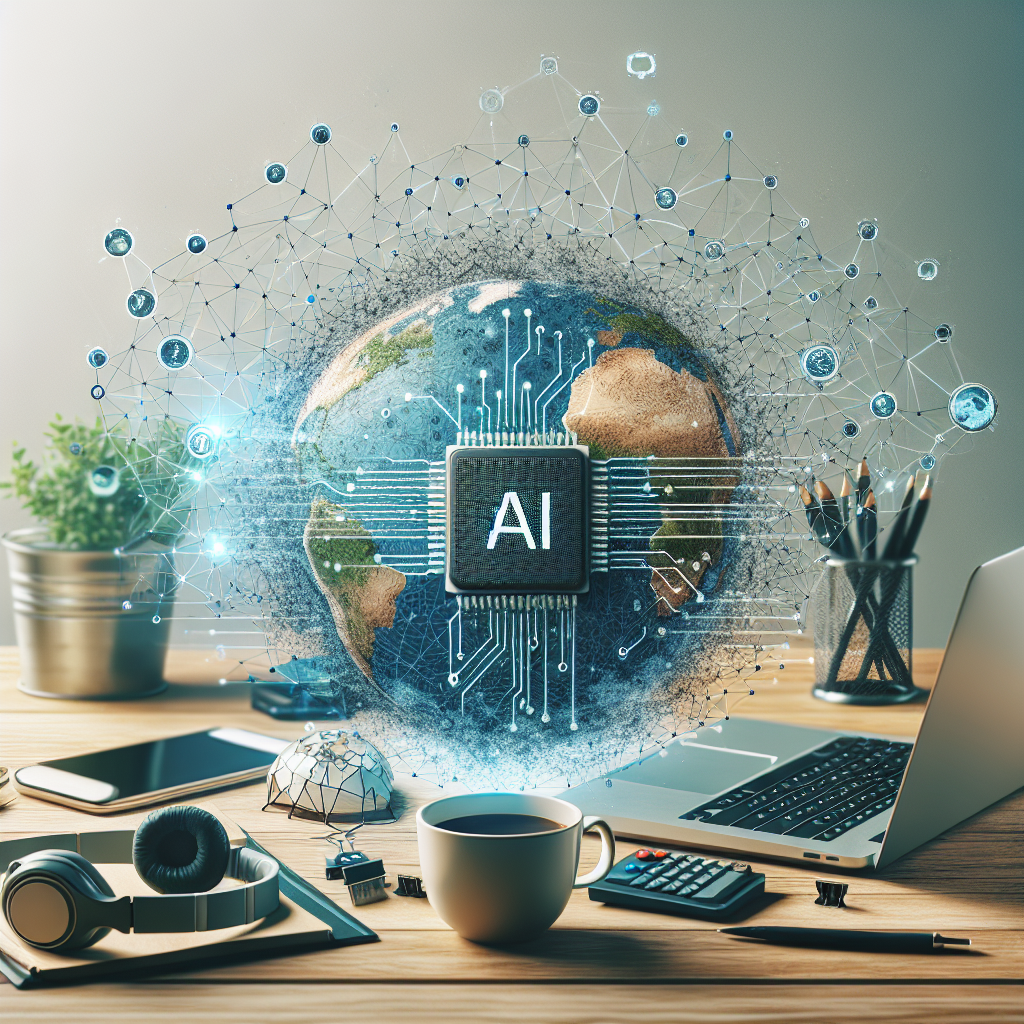In recent years, the rise of remote work has become increasingly prevalent, with more and more companies embracing the flexibility and efficiency that it offers. The COVID-19 pandemic accelerated this trend even further, as businesses were forced to adapt to new ways of working in order to ensure the safety of their employees. As a result, many organizations have turned to artificial intelligence (AI) integration as a means of enhancing the remote work experience for their employees.
AI integration involves incorporating AI technology into various aspects of remote work, such as communication, collaboration, project management, and productivity tracking. By leveraging AI tools and platforms, companies can streamline processes, improve efficiency, and enhance overall performance. In this article, we will explore the ways in which AI integration is enhancing remote work experiences, as well as address some frequently asked questions about this emerging trend.
1. Improved Communication and Collaboration
One of the key benefits of AI integration in remote work is improved communication and collaboration. AI-powered tools such as chatbots, virtual assistants, and smart messaging platforms help employees stay connected and engaged with their colleagues, regardless of physical distance. These tools can facilitate real-time communication, automate routine tasks, and provide instant access to information and resources.
For example, chatbots can assist employees with scheduling meetings, finding relevant documents, and answering common questions, freeing up time for more strategic tasks. Virtual assistants can help teams coordinate projects, assign tasks, and track progress, ensuring that everyone is on the same page and working towards common goals. Smart messaging platforms can enable seamless communication and file sharing, making it easier for employees to collaborate effectively, even when working remotely.
Overall, AI integration enhances communication and collaboration in remote work settings, fostering a sense of connectivity and teamwork among employees. By leveraging AI tools, companies can overcome the challenges of remote work and create a more cohesive and productive work environment.
2. Streamlined Project Management
Another area where AI integration is enhancing remote work experiences is in project management. AI-powered project management tools can help teams plan, organize, and execute tasks more efficiently, ensuring that projects are completed on time and within budget. These tools can automate repetitive tasks, provide real-time insights and analytics, and optimize resource allocation, allowing teams to focus on high-value activities and deliver better results.
For example, AI algorithms can analyze project data and predict potential risks or bottlenecks, enabling teams to proactively address issues before they escalate. AI-powered scheduling tools can optimize task assignments and deadlines based on team availability and workload, ensuring that projects are completed in a timely manner. AI-driven collaboration platforms can facilitate seamless communication and file sharing, enabling teams to work together effectively, regardless of physical location.
Overall, AI integration streamlines project management processes in remote work environments, enabling teams to work more efficiently and effectively. By leveraging AI tools, companies can improve project outcomes, increase productivity, and drive business success.
3. Enhanced Productivity Tracking
AI integration also plays a key role in enhancing productivity tracking in remote work settings. AI-powered tools can monitor employee performance, track work hours, and analyze productivity metrics, providing valuable insights into individual and team performance. These tools can help managers identify areas for improvement, optimize work processes, and ensure that employees are meeting their goals and deadlines.
For example, AI algorithms can analyze employee activity data and identify patterns or trends that may impact productivity, such as excessive time spent on non-work-related tasks or frequent distractions. AI-powered time tracking tools can monitor work hours and tasks completed, enabling managers to assess individual performance and allocate resources effectively. AI-driven performance analytics platforms can provide real-time feedback and recommendations for improvement, helping employees stay on track and achieve their objectives.
Overall, AI integration enhances productivity tracking in remote work environments, enabling companies to monitor performance, identify bottlenecks, and drive continuous improvement. By leveraging AI tools, organizations can optimize productivity, boost efficiency, and maximize the impact of remote work.
4. Frequently Asked Questions (FAQs)
Q: What are some common AI tools used for remote work?
A: Some common AI tools used for remote work include chatbots, virtual assistants, smart messaging platforms, project management software, time tracking tools, and performance analytics platforms.
Q: How does AI integration benefit remote work experiences?
A: AI integration benefits remote work experiences by improving communication and collaboration, streamlining project management, enhancing productivity tracking, and driving efficiency and performance.
Q: How can companies leverage AI integration for remote work?
A: Companies can leverage AI integration for remote work by implementing AI-powered tools and platforms that automate routine tasks, provide real-time insights and analytics, and facilitate seamless communication and collaboration.
Q: What are some challenges of AI integration in remote work?
A: Some challenges of AI integration in remote work include data privacy and security concerns, integration with existing systems and processes, employee resistance to change, and ensuring that AI tools are used effectively and ethically.
Q: What are some best practices for implementing AI integration in remote work?
A: Some best practices for implementing AI integration in remote work include conducting a thorough assessment of business needs and objectives, selecting the right AI tools and platforms, providing training and support for employees, monitoring performance and outcomes, and continuously evaluating and optimizing AI strategies.
In conclusion, AI integration is enhancing remote work experiences by improving communication and collaboration, streamlining project management, enhancing productivity tracking, and driving efficiency and performance. By leveraging AI tools and platforms, companies can overcome the challenges of remote work, foster a more cohesive and productive work environment, and achieve better results. As remote work continues to evolve, AI integration will play an increasingly important role in shaping the future of work and driving business success.

